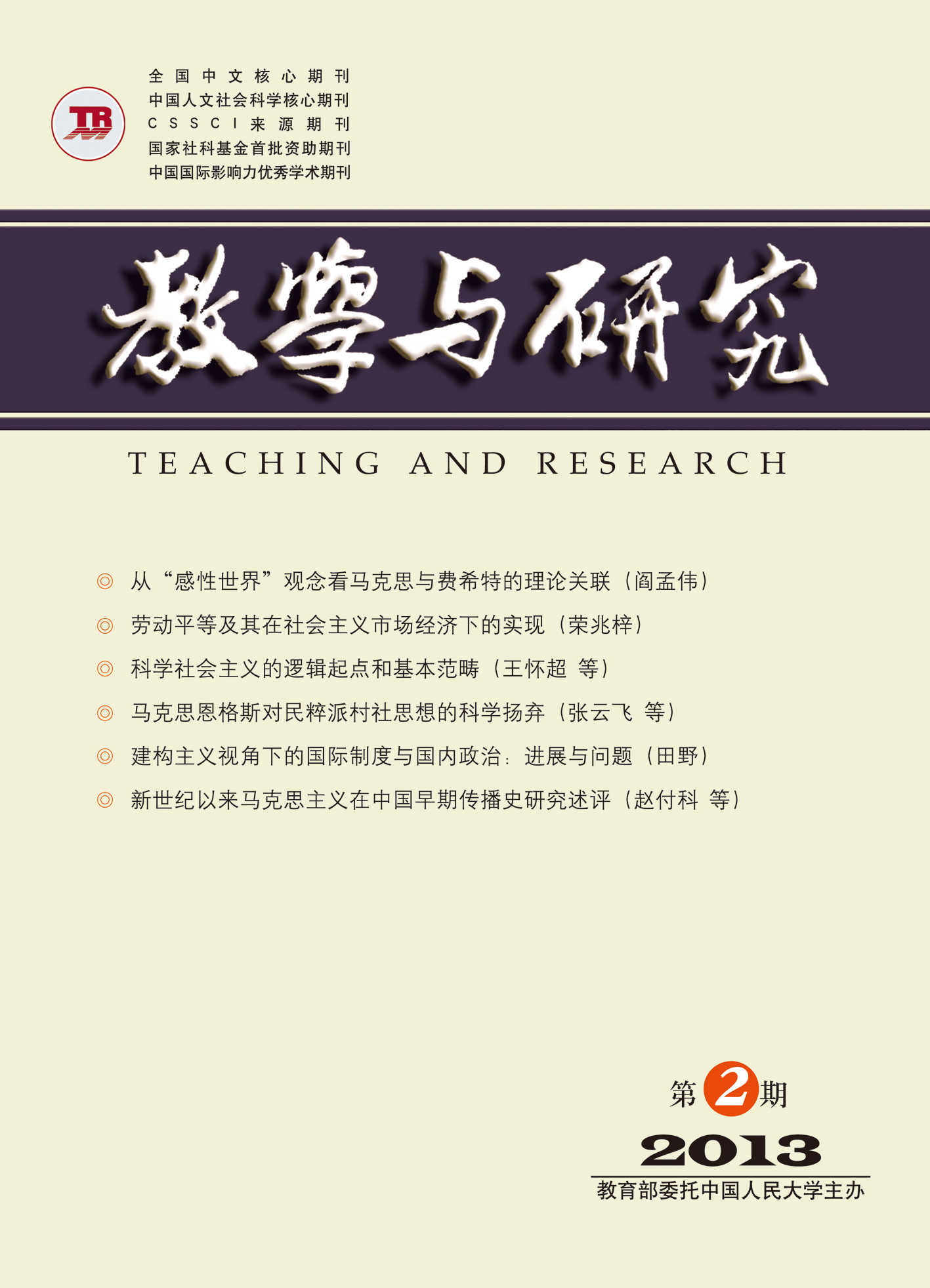|
|
A Review of Studies on China's Participation in International Systems
FAN Xiao-Ying
2013, 47 (2):
86-94.
DOI:
In recent years, domestic and foreign scholars showed increasing attention to the issue of “Chinas participation in international systems” and many significant researches have appeared. The literature covers various topics about China's participation in international systems, including its historical process, guiding ideology, overall effects; negative factors, strategic policies and future roles. These researches contribute to the academic progress and diplomatic practice. However, the current research remains to be improved and the academia should further enhance studies on the problem of China's participation in international systems with wider vision, appropriate method and accurate insight.
Related Articles |
Metrics
|



